Coaching has taken the world by storm. It’s not a new concept and has been around for centuries but has taken off like wildfire in the past few years.
The reason for this sudden surge in popularity is that people are hungry to learn and grow. This hunger is being met by coaches who are offering their services virtually through various online coaching platforms.
There is money to be made in coaching while helping other people develop their skills.
The question then becomes, how do you start an online coaching business?
This article will give you all the insider tips you need to start an online coaching business, get your first clients, and grow your business as quickly as possible.
Let’s dive straight in!
Who is an online coach?
An online coach is exactly what it sounds like. You are not physically sitting down with a client in front of you. Instead, you are communicating through a video call or some other type of digital medium.

Did you know that the online coaching industry is estimated to reach $1.34 billion in 2022?
It’s an excellent option for people looking for more flexibility.
For example, you may have a full-time job that doesn’t allow for the same availability as people who work for themselves.
You may also work from home and have a schedule that doesn’t allow for the same daily availability as someone who works for an office.
Whatever the case, online coaching is a thriving industry and one that you should consider being a part of if you have a flair for it.
What is an online coaching business?
Coaching businesses provide a variety of coaching services.
For example, you could offer private or group coaching. You may specialize in business coaching, life coaching, or even sports coaching.
The great thing about online coaching businesses is that they are entirely flexible!
Types of Coaching
Here’s a quick look at some of the different types of coaching.
Private coaching
This is a one-on-one coaching session between you and your client. During private coaching, you will focus on the client alone and the specific things they need to improve.
Group coaching
This particular type of private coaching involves a group of clients. Together, you can participate in group coaching sessions where you share your attention with the whole class.
Under private or group coaching, you can offer niche-specific coaching, such as:
Life coaching
Life coaching is all about learning how to live a better life. Life coaching is usually more focused on areas like relationships or work. You and your clients will discuss how to improve various areas of life.
Business coaching
Business coaching focuses on helping clients reach their career goals. Business coaching is usually about assisting clients in turning their dreams into reality. It can include everything from marketing to keeping accounts.
There are many other types of coaching, but you get the idea.
8 things you need to start an online coaching business
Running your own online coaching business can be a rewarding experience if you have the skills and experience and are comfortable teaching others.
You need to have the right mindset and a lot of patience if you want to run a successful online coaching business.
It isn’t as difficult as most people believe it to be.
In fact, it can be one of the best ways to generate passive income from home or make enough money each month from your side hustle to supplement your primary source of income.

That being said, running an online coaching business comes with its fair share of challenges that you need to be prepared for.
These challenges may include finding a niche and encouraging repeat customers to become loyal clients.
The good news is, running an online coaching business doesn’t have to be all that challenging. As long as you approach it the right way from the get-go.
Here are eight simple things you can do to set yourself up for success.
Step 1: Select a niche
Niche targeting is essential when it comes to running an online coaching business.
You don’t just want to coach people in general. You want to coach people in your specific niche market who are looking for specific solutions to their problems or answers to their challenges.
You need to do some research to determine what niches exist out there in the world of online coaching.
Do you have a skill that is in demand? Something that you have the expertise and experience in and are able to train others? Well, that’s your niche!
Additionally, use online tools like Google Trends or Google Keyword Planner to see what related searches people have done on Google.
Step 2: Identify your USP
Your unique selling proposition (USP) is the one thing that makes your business stand out from the competition. It’s a specific benefit that you offer that’s either better than competitors or unique to you.
Your USP should be something that will resonate with your target market and be very appealing to them.
Your USP may be something that relates to a specific need that your target market has or something you are uniquely able to provide.
This may be something that relates to solving a specific challenge that your target market is facing. It could offer insight that helps your target market better understand their life.
Your USP could also be one of those life-changing insights or solutions that helps your target market overcome their biggest challenges.
Step 3: Create your coaching program
Once your niche market is narrowed down and your USP clearly defined, you’ll want to create a coaching program that helps people overcome challenges.
If you know what challenges your clients are facing, you can help them overcome them in your program.
You can design the program around common issues within your niche and provide the means to learn how to cope, overcome or avoid those challenges.
Your coaching program should be engaging and interactive.
It should help your clients feel more connected to you and your solutions, not just as a coach but as a friend or family member who cares about their challenges and how to overcome them.
Step 4: Determine the pricing
Pricing is something you need to take into consideration while running your online coaching business.
You want to find the right balance between attracting new clients and charging enough money to cover your expenses while making a little profit.
This includes your coaching program and all the associated costs that go into creating and delivering that program.
Research to determine your ideal price point. You can do this by looking at your competitors’ pricing strategies or at similar businesses in your niche that have done it successfully.
You need to determine the right price point that will allow you to make a profit while sustaining your growth as an online business.
Step 5: Build a website
Make sure your website is ready to go before you start promoting your online coaching business.

You don’t want to scramble to get a website up and running while your clients wait for their coaching sessions to start. They’ll be disappointed if your website is not ready to accept payment and delivery of their sessions.
Ensure your website is up-to-date and functional, incorporating SEO basics to meet the criteria required by Google and other major search engines for ranking high in search results.
Your website should be built on a platform that is easy to navigate and allows you to easily create engaging online programs and coaching programs for your clients and sell your products and services.
This will help you scale your business and attract new clients.
To help you, we’ve got a detailed article on how to build an online course website with WordPress.
Step 6: Create a sales page
A sales page is designed specifically to promote your coaching program.
A thoughtfully crafted sales page helps engage more users and convert them into prospects and then into customers. A distraction-free sales page ensures that you get your user’s attention and increase the chances of boosting conversions.
However, creating a high-converting sales page can be challenging. The good news is that you can use sales funnel builders, such as CartFlows.
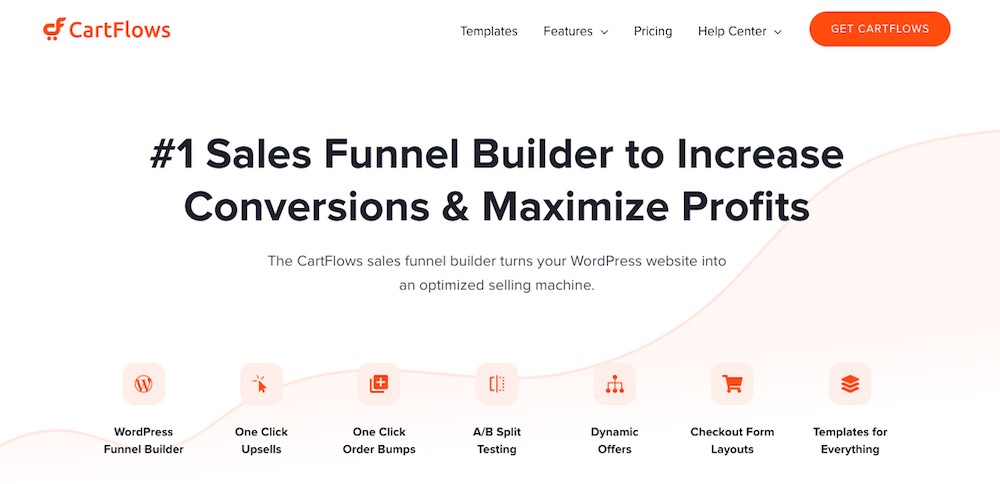
The high-converting sales funnel plugin has everything you need to generate leads and increase sales.
From conversion-optimized templates to including one-click upsells and order bumps, CartFlows has you covered.
Step 7: Create social media accounts
Social media is an essential part of running any successful business. You can create social media accounts on major platforms like Facebook, LinkedIn, Twitter, and Instagram, wherever your target market is likely to spend time.
These platforms allow you to attract new clients and keep old ones coming back for more.
You also want to make sure you are posting engaging and helpful content on social media. Engage with your target audience, recommend valuable content, respond to questions, and post practical advice on topics related to your niche.
Step 8: Start promoting your online coaching business
Once you have your website and sales page, your blog content written, and your social media accounts created, you need to start promoting your online coaching business.
Promotion can come in many forms, such as creating new content on your blog, promoting on social media and running paid ads on Google.
One powerful way to promote your business is to offer a free trial.
This will help you attract new clients and keep old ones returning for more training. It removes the payment risk and should help encourage people to try before they buy.
Tips and tricks for creating your online coaching program
Coaching isn’t something that happens by magic. It requires a lot of planning, research, and execution if it’s going to be a success.
However, creating your online coaching program shouldn’t be too difficult with the right strategy and some basic knowledge.
Here are a few tips and tricks for creating your online coaching program – from choosing the right platforms to using them effectively.
Choose the right platform
Selecting the right platform for your program is crucial. It’s not just about finding the best fit for your brand – it’s about finding the right fit for your audience.
If you will have the time to dedicate to building and managing your own website, WordPress is the best platform.
If you don’t think you’ll have the time to dedicate, perhaps paying for someone to build a website and manage it for you might be better.
Research your audience
You also want to research your audience before you choose the platform.
Asking yourself the following questions will help you figure out who you should be targeting:
- What are your customers’ challenges?
- What difficulties or issues are your customers most likely to be struggling with?
Plan your content ahead of time
Once you’ve figured out the right platforms for your online coaching program, you’ll want to start planning your content. This will help ensure you have enough content to keep your customers engaged and happy.
You can do this by creating a content calendar and making sure that you’re consistently creating new content. You can use this calendar to track which content types you should focus on.
For example, you can create a content calendar with a weekly view, a monthly view, a quarterly view, and a yearly view to keep track of specific dates for certain content types.
Keep it fresh with new content and start engaging with your audience
Once your content is planned and ready to go, you’ll want to keep it fresh and relevant with new and updated content.
Not only does it give your customers something new to read, but it also ensures your content is updated with the changing times and trends.
You could also start engaging with your customers. You know, answer queries, start a live chat session, reply to blog comments, among other things.
This will allow you to engage with your customers on a more personal level.
Best software for setting up your online coaching business
Like many online coaches, you probably spend much of your day coaching and seeking new clients. After all, that’s how you’ll make money as an online coach.
To do that, you need a solid system for managing your business and tracking the performance of your programs and marketing campaigns.
Luckily, plenty of SaaS-based tools and WordPress plugins can help you set up as an online coach.
We’ll focus on the latter.
Here are a few WordPress plugins that you can consider to start an online coaching business.
1. LearnDash
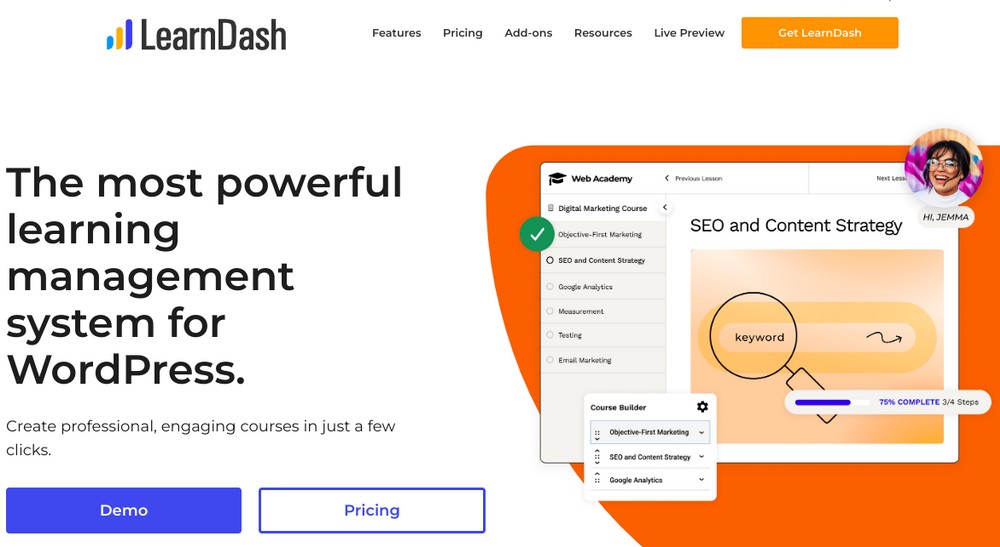
LearnDash is a powerful LMS (learning management system) for WordPress that lets you easily create and manage professional and engaging courses in just a few clicks. With LearnDash, you’ll have complete control when selling your online courses.
2. LifterLMS

LifterLMS is another popular WordPress LMS plugin that makes it easy to build your online coaching platform. A user-friendly interface allows you to set up and launch your coaching program in no time. Want to offer membership and subscription plans? LifterLMS has you covered.
3. Tutor LMS
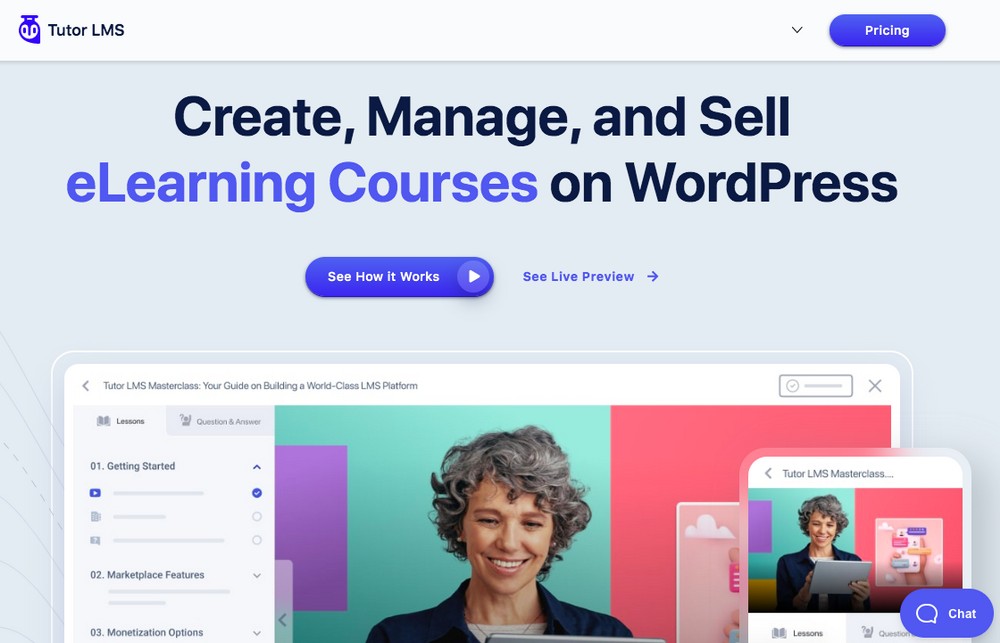
Tutor LMS is a feature-rich WordPress LMS plugin that allows you to easily create, manage, and sell courses and coaching programs on your website. With Tutor LMS, you can create lessons, quizzes, assignments, and more, to engage your students.
4. Masteriyo
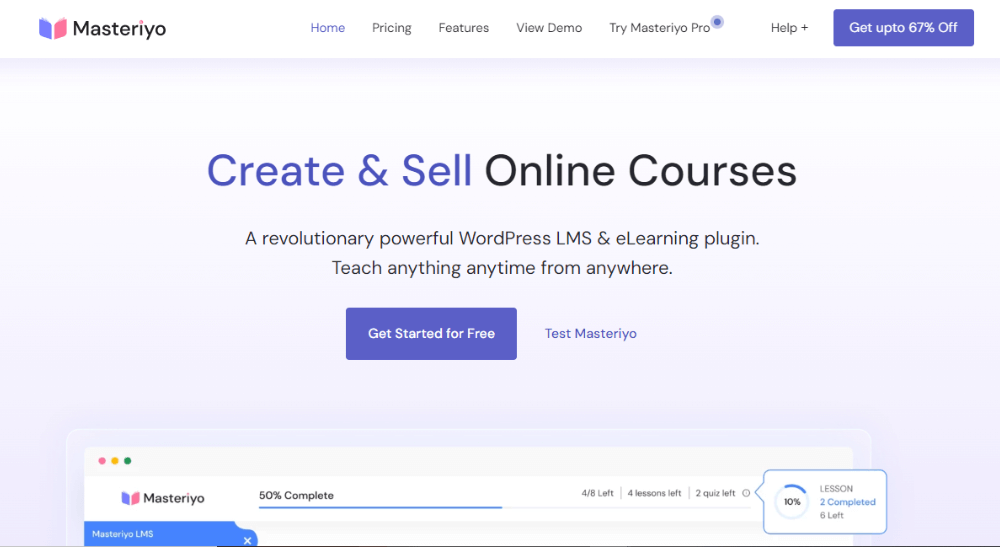
Masteriyo is a fantastic WordPress LMS plugin for creating online courses. It offers a user-friendly interface, making it perfect for beginners to create engaging learning experiences for their audience.
The plugin includes a drag-and-drop course builder to easily create interactive segments like sections, lessons, quizzes, and many more. Additionally, you can design beautiful certificates for your students after they complete their course.
With the use of the inbuilt order system, you can easily sell courses without using any additional plugins. It has inbuilt support for PayPal and Stripe. In addition, you can also use the WooCommerce integration addon to integrate checkout and use 300+ secure payment gateways.
Features:
- Schedule live classes and meetings easily with the Zoom integration
- Provide a Q&A section for lessons, assignments, and quizzes
- Review system for rating courses
- Password strength checker to enforce strong passwords
- Course archive filter for students
Price:
Premium versions cost between $49.17 per year and $164.67 per year depending on the features you choose.
Our Opinion on Masteriyo
If you’re looking for a feature-rich and easy-to-use LMS plugin for WordPress, Masteriyo is an excellent choice.
Learn More: https://masteriyo.com/
5. Paperform

Paperform offers an elegant, hassle-free solution to launch an online course website. From easily customizable course templates to dynamic features that keep students engaged, Paperform is perfect for both novice instructors and seasoned educators.
How to get more coaching clients
Finding clients for your online coaching business can be a difficult task. This is especially true if you are just getting started.
We recommend the following online strategies to find clients for your online coaching business.
Leverage your online presence
When you start an online coaching business, you want to leverage your online presence. This means you will want to start blogging and building a website.
Leverage your network
Your network is another great place to find clients for your online coaching business. You can ask your friends and family if they know of anybody who would be interested in receiving coaching.
Leverage search engines
You will want to leverage search engines when you are looking to find clients for your online coaching business. Put your business listing in Google and Bing while also working on optimizing your website for search engines.
Leverage social media marketing
Social media marketing is one of the best ways to find clients for your online coaching business. Run targeted ads, engage with an audience, and do much more on social media.
Have you started an online coaching business?
Starting an online coaching business can be challenging. This is especially true if you have never done it before.
The good news is that, with the right strategies, you can start an online coaching business from home and become super successful at it.
We’ve discussed it all here in this article. From selecting a niche and identifying your USP to building a website and promoting your coaching business, we have it all covered.
Let us know if you found this helpful.
Have you started your online coaching business? Comment below!
Disclosure: This blog may contain affiliate links. If you make a purchase through one of these links, we may receive a small commission. Read disclosure. Rest assured that we only recommend products that we have personally used and believe will add value to our readers. Thanks for your support!


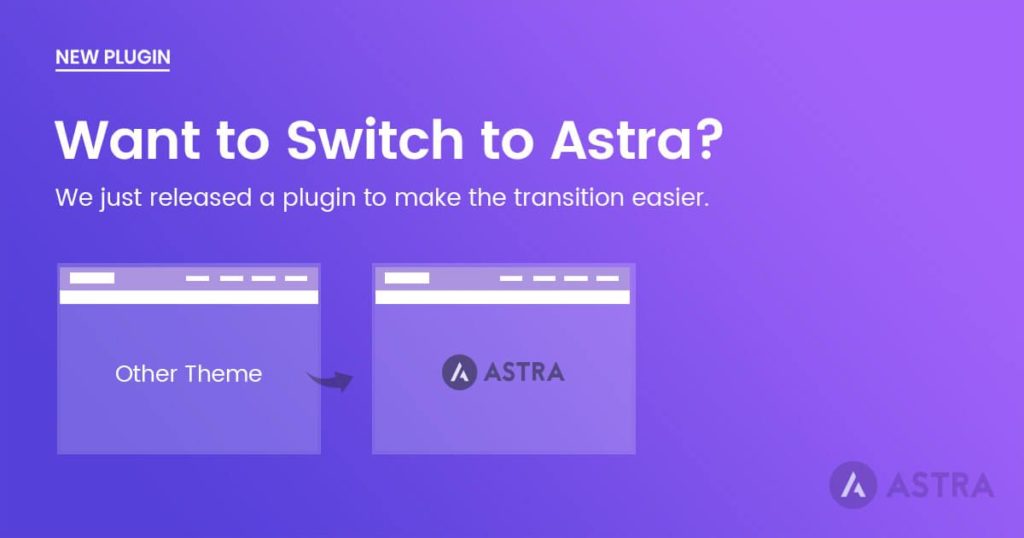
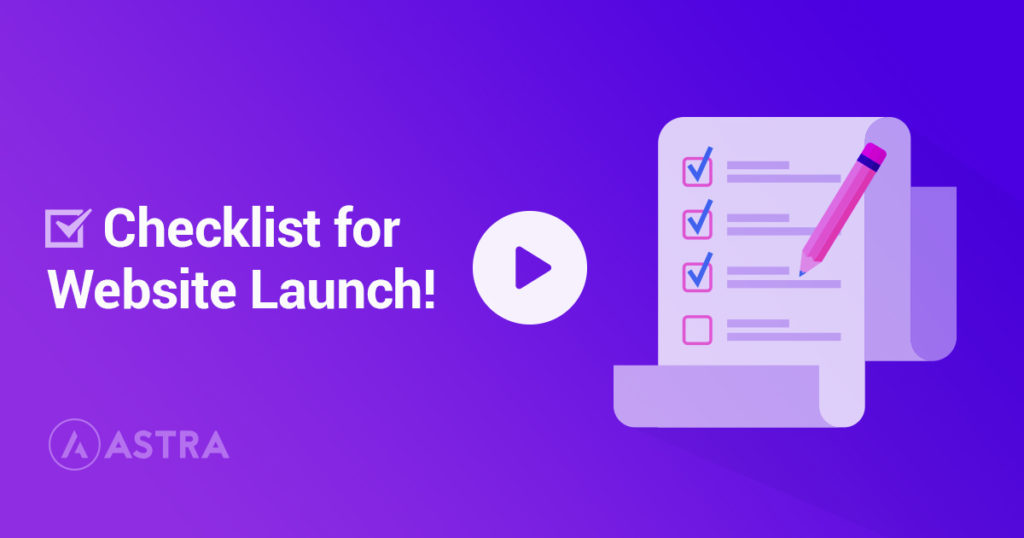


Amazing article, I have learned so much on this page. Feeling confident to go start by coaching business.
Thank you!